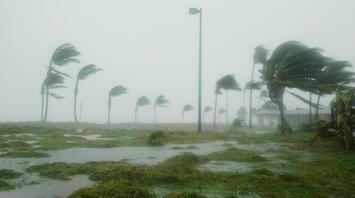Travel Disruptions Expected as Hurricane Season Intensifies

The Atlantic hurricane season is intensifying as September begins, with forecasters predicting the peak around September 10. While the peak season typically occurs in late August, September, and October, the potential for travel disruptions remains high. Past hurricanes like Katrina and Ian have shown how severely these storms can impact regions, and travelers should be prepared for possible delays, cancellations, and changes to cruise itineraries.
Currently, meteorologists are tracking three storm systems, one of which, near the Lesser Antilles in the Caribbean, has a 50% chance of developing into a hurricane. Another storm is off the western coast of Africa, and a third is in the Gulf Coast near Texas, where heavy rains could cause flash flooding. With predictions pointing to an active hurricane season, staying updated with travel advisories is crucial for those planning to fly or embark on cruises.
Alongside adverse weather impacting travel, an outbreak of the waterborne parasite cryptosporidium in Brixham, South Devon, has led to 46 verified cases and more than 100 additional accounts of symptoms. Locals have condemned South West Water's reaction as insufficient, and medical authorities have recommended boiling water while inquiries proceed. The outbreak has additionally caused cancellations in the regional travel sector due to health worries.
The outbreak triggered distress among residents, with severe symptoms like prolonged diarrhea, headaches, and weight loss, particularly threatening vulnerable individuals with weakened immune systems. South West Water set up bottled water stations and organized deliveries, but some residents struggled to access supplies. Local businesses, especially in hospitality, were also affected as guests canceled bookings over water safety concerns.
In light of these developments, travelers and local residents alike are urged to exercise caution. Staying informed about both weather conditions and health advisories is essential, particularly during this active hurricane season and amid ongoing public health concerns. As the situation continues to evolve, maintaining flexibility in travel plans and prioritizing safety can help mitigate the impact of these disruptions. By staying vigilant and prepared, both tourists and locals can better navigate the challenges posed by natural and health-related events.



















